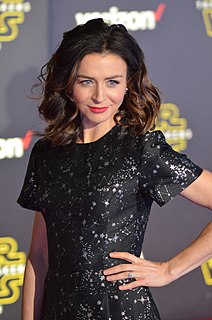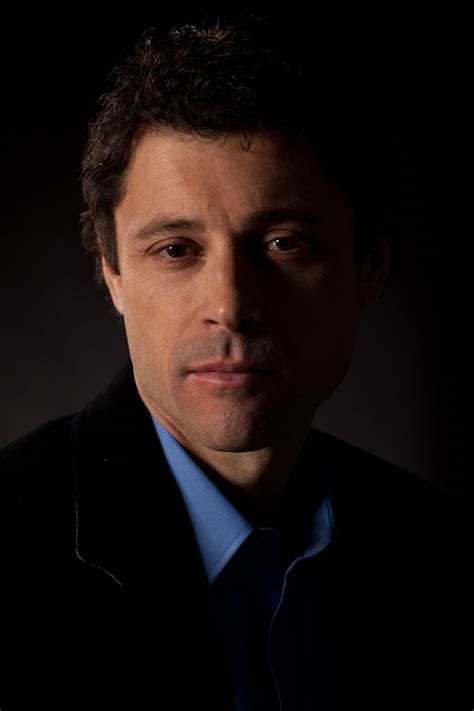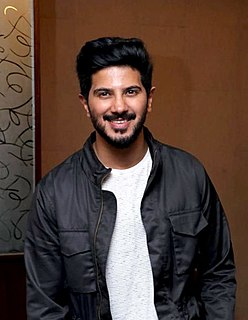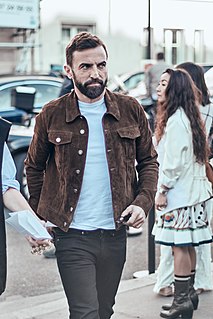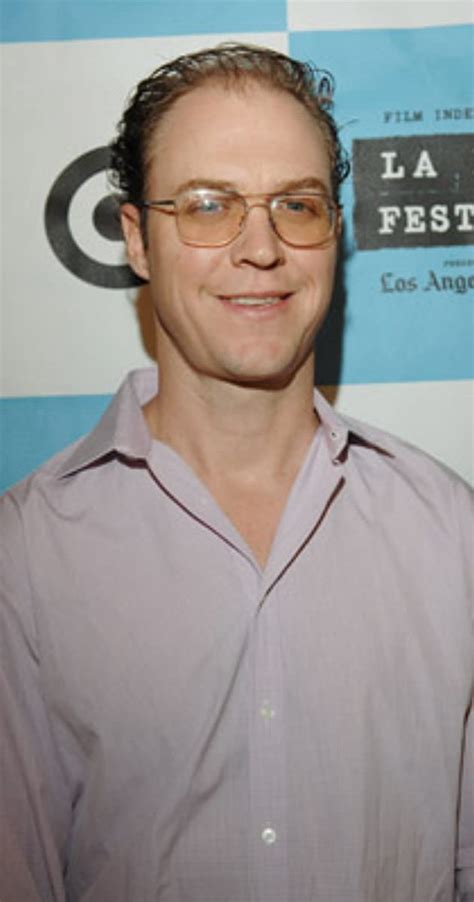A Quote by Caterina Scorsone
When you're even on a regular movie set, you still have to suspend your disbelief. You're working there with only 3 walls of a room, and you're in costume, and you have a camera 6 inches from you and have a crew of 75 watching you. So even there, you have to crank up your imagination.
Related Quotes
Whenever you're writing a book or creating a movie or a game, your first task is to get the reader/audience/player to suspend disbelief, to buy into the logic and boundaries of your world, even though those boundaries might include things like dragons and magic. To do that, you need long threads - of history and culture.
It's like the smell of burned toast. You made the toast. You looked forward to it. You even enjoyed making it, but it burned. What were you doing? Was it your fault? It doesn't matter anymore. You open the window, but only the very top layer of the smell goes away. The rest remains around you. It's the walls. You leave the room, but it's on your clothes. You change your clothes, but it's in your hair. It's on the thin skin on the tops of your hand. And in the morning, it's still there.
When you do your collection, you are much more free. You have fewer boundaries. When you work on a movie, you have to take into consideration the story, the plot, the vision of the director, even the physique of your cast. And then on top of all this, you want your imagination, your taste, and your ideas to come through. But a movie is forever.
A huge part of what we do as actors is learning to ignore the camera, as if it's not even there, while simultaneously being very aware of the camera and what it's capturing, because you can give the best performance of your life, but if you do it with the back of your head facing the camera, it's going to get cut from the movie.
I believe there is a moment growing up when you build your own mood board. You do a collage - you collect a few things, a few images that will be so important for your future choices. Not only aesthetic, or what you like for dressing, but your artistic choices. The room where I put papers and pictures and posters on the walls when I was a kid, it's still very strong in my head today. This movie poster or that portrait of a girl I took from a magazine, deep inside, is inspiration that comes back all the time.
Do you really mean to tell me the only reason you try to be good is to gain God's approval and reward, or to avoid his disapproval and punishment? That's not morality, that's just sucking up, apple-polishing, looking over your shoulder at the great surveillance camera in the sky, or the still small wiretap inside your head, monitoring your every move, even your every base though.
I'm such a believer in going to set, even when you're not working, because I think the best things to be learned, you don't necessarily get from your own scene or from someone speaking to you and telling you advice. I think it's all about watching and just taking it all in. It's not even when the cameras are rolling, necessarily.
It's so easy to disappear into your character because there isn't all this fuss around you, and we keep a closed set, and closed off to all crew members, even, unless we're cut. A lot of times, you're doing a scene in a movie and there are literally 35 people standing behind the camera all waiting to do their job, but here they have to be off the stage. On The Office, it is very much just the actors, a cameraman and a boom operator, like a real documentary, like we really are being documented.
I'm such a believer in going to set, even when you're not work because I think the best things to be learned, you don't necessarily get from your own scene or from someone speaking to you and telling you advice. I think it's all about watching and just taking it all in. It's not even when the cameras are rolling, necessarily. You can see how they interact with the rest of the crew, and how they deal with being a character and then being themselves.
If there's a cutaway, you need to get it then because it's only going to last [a few moments]. You have to edit the movie as you're shooting it in your head and communicate with your crew about how it's going to work. While making a movie, you have the luxury of storyboards and a script and a bigger crew and actors. I mean, it's so much easier.
